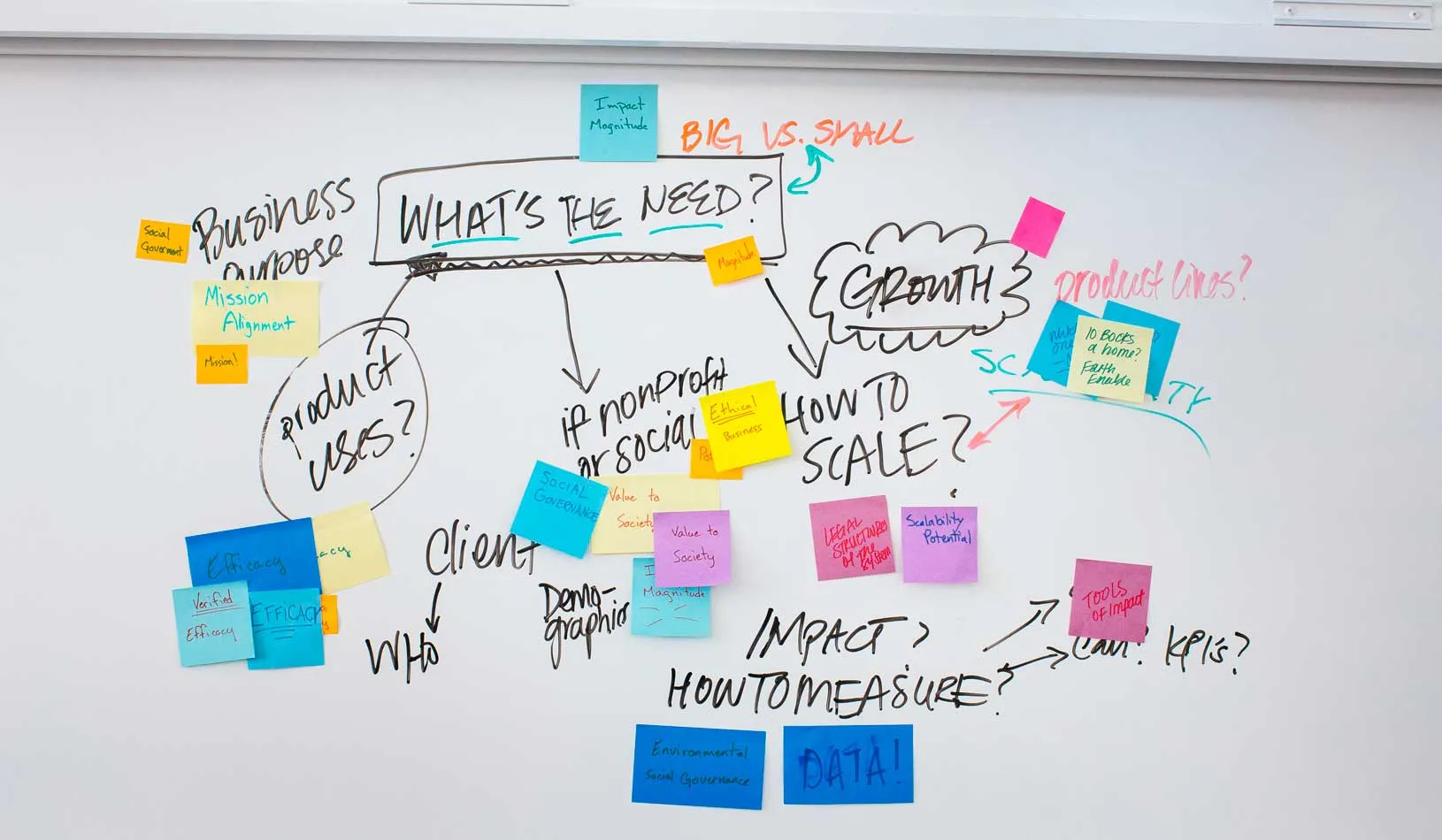February 16, 2018
| by Jenny LunaThe rigorous, inquiry-based course Startup Garage is known across the Stanford campus for eclectic and unique use of design thinking, lean startup methodologies, flipped classroom approach, and real-world application. Since the class was first offered by Stanford GSB and Stanford d.school five years ago, more than 25 viable businesses have been created.

For 100 years, we’ve been dedicated to the things that haven’t happened yet, and the people who are about to dream them up. Join us in commemorating our Centennial in 2025.
Led by Stefanos Zenios, the Investment Group of Santa Barbara Professor of Entrepreneurship, along with 10 other professors, students are encouraged to formulate and test their ideas, push hard, and ultimately learn by proving or disproving their initial concepts.
“For many students, the mindset is ‘I want to make this hypothesis work,’” Zenios says. “Whereas we want to teach the mindset: ‘I want to discover if this hypothesis is valid or not — and if it’s not valid, why not.’”
Students have worked on everything from online marketplaces to artisan gift companies to meal delivery services to supply chain businesses. Here is a sampling of just a few ventures created over the past five years in Startup Garage.

Students employ design thinking methodologies when researching, testing, and validating business ideas. | Elena Zhukova
DoorDash
Launched in 2013 by Tony Xu, MBA ’13; Stanley Tang, BS ’14; and Andy Fang, BS ’14
DoorDash, the well-known online service that delivers meals directly from restaurants to customers, was launched by three Stanford students in 2013. During the first week of the class, Xu and his Startup Garage team spoke to 60 business owners, though one interview stood out. The group met a woman with a small but popular macaroon shop and learned that her customers were eager to have the cookies delivered to their offices. The students pivoted this idea to restaurants and launched the successful meal delivery service in 2013 and by 2015 DoorDash was valued at $600 million.
Grace Portraits
Launched in 2014 by Liz Grace, MBA ’15 and Cameron Grace, MBA ’15
Husband and wife team Liz and Cameron Grace enrolled in Startup Garage specifically to work on their business of creating personal hand-drawn portraits. After some initial research, the duo’s approach to Grace Portraits shifted dramatically. Through user interviews assigned in the class, the Graces learned that customers wouldn’t purchase the portraits for themselves: They wanted to buy them as gifts. “It seems super-obvious now, but once we found this out through our interviews, it completely changed our business model,” Liz Grace says. “There’s this pressure as an entrepreneur to always execute and produce, but that ‘pre-work’ is such a valuable process.”
Aplomb
Launched in 2017 by Amanda Sayigh, MBA ’17 and Lauri Moore, MBA ’17
Aplomb was founded by two students last year who wanted to help businesses find the right candidates through machine learning conversations and interfaces. During their initial research in the class, Sayigh and Moore learned that finding and hiring is tough — and further complicated by high costs and other inefficiencies. Through Startup Garage, the women gained an intimate understanding of the customers they wanted to target. The fieldwork required in Startup Garage, Sayigh says, drove her and Moore to develop deeper connections with customers and narrow in on their mission.
Going Merry
Launched in 2017 by Charlie Maynard, MBA ’17 and Raymond Murthi, MSc ’07 (Carnegie Mellon)
Charlie Maynard worked on Going Merry, a company that connects students with financial aid opportunities, in Startup Garage last year with the help of John Deniston, MBA ‘17. Maynard remembers his team’s initial research didn’t take into account the scholarship providers. “The class helped us ask really simple questions that we hadn’t thought to ask,” Maynard says. Once his team began tackling the issues from the perspective of both students and providers, they accelerated quickly. “Startup Garage is really good at pushing you,” Maynard says. “Every week you’d have deadlines and have to update people on what you had done.”
Nimble
Launched in 2017 by Lauren Dachille, MBA ’17
“We are trying to answer one of the most important questions in K-12 education,” Dachille says. “What makes a good teacher?” Dachille led her group in Startup Garage to create Nimble, a company that uses data-driven solutions for school districts looking to hire teachers and increase retention rates. Dachille entered the class knowing what she wanted to create but without a clue where to begin. “One of the most intimidating things about starting a company is that there is no process or structure around it,” Dachille says. “Startup Garage teaches you how to come up with hypotheses, test those hypotheses, and get as close to actually doing it as you can — while also being a student.”
For media inquiries, visit the Newsroom.



